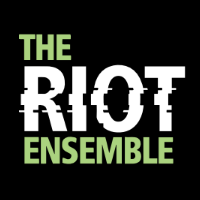More Hands: Phil Baker
We’ve got a concert coming up this month at the Friend’s Meetinghouse (in Brighton) where we’ll be recapping some of our favourite pieces of the 2013 season and also playing some pieces by composers from the New Music Brighton collective. We’re gearing up for the concert by asking the NMB Composers the same series of questions, so you can get a feel for who they are and what they do. The third in this series of interviews: Phil Baker.
Thanks for being with us Phil. First up, are you a Brighton composer or a composer that lives in Brighton?
I’m not sure what ‘Brighton composer’ might suggest: composers are composers wherever they’re from and I have never thought there was any suggestion of there being a ‘Brighton School’. I am, technically, Brightonian but haven’t lived in the city for some years. I used to dislike being called a ‘local composer’ which seemed already to consign one to parochial anonymity. I suppose that if being a Brighton composer the chances of increased financial support were forthcoming, the title could be worth it.
Could you give us a little insight into how you compose? (Do you have a set time you work at? Do you write at the piano? Etc…)
Having begun a new work, I make a point of writing every weekday and, if needed, weekends too. There is always a point when the work becomes slightly obsessive and preoccupying together with the sense of wanting it to be finished and out the way (Out the Way being, incidentally, the title of my Jazz Suite). Inspiration comes largely by being asked to write a work (a rarity), being asked to write a work for a particular performance (more common) or to be paid to write a piece (very rare); on the whole, I like to think I can pick up the thread of a piece each day partly as a matter of having a technique which can be brought into play to generate ideas if nothing presents itself. I often work on two pieces at once but I’m not sure why that happens so often.
When I first started to compose, it was at the piano with a pencil and rubber and I find that now at least some of the tentative steps at the start of a piece often happen that way; writing songs are most comfortably written at the piano but I’m not sure why that should be. With the advent of notation software, I also use that either to transcribe from penciled manuscript or directly into the system. Needless to say, much of the work is about listening to silence in your own mind in order to find the sounds. Orchestral music is usually written direct to score but with much sketching and scribbling besides on paper. (One of the pieces I am currently writing is, however, in piano reduction for later orchestration but there is a particular reason for that). My opera The Bayeux Tapestry was also produced in that way.
Sometimes the work will progress against the odds ignoring that nagging feeling that it’s going in the wrong direction: several pages can be discarded by not listening well enough to the musical conscience. Creativity generally, I think, is a complexity of processes which involves spontaneity, rigid control, aesthetic judgements and luck. When the ideas flow, it’s usually a sign to stop and wait for a new day.
Echo’s Antiphons was worked on over a period of about three years in part because there were other pieces to be written but in part because I wasn’t sure which prison I was in at the time. My hope is that it will sound free.
When you compose, who do you think of most: the performers, the audience or other composers?
In a nutshell, my attention is on the unfolding of the piece itself. It’s a question of putting an idea down and then combing through it in order to remove the knots; or to shape it more satisfactorily; or to change an interval here or there or to tweak a rhythm or two. The trouble is that, by making a single change, many others have to follow and I quite often make changes to works written some time ago simply because there is a different perspective over time. On the whole, Brahms’ advice to finish a work and put it in a drawer for a month or two is very sound if only to forestall the pitfalls of vanity.
I have written some Gebrauchmusick and, as such, those works certainly take into account the prospective performers. That is an enriching factor since it provides limitations. Also, some performers have particular characteristics which can be enriching to tap into and especially where singers are concerned. It is equally difficult to write difficult music for gifted executants as straightforward music for the competent but it is an aspiration to be able to write for anyone and anything. I don’t think it follows that one should write technically demanding music just because the performers can manage it; and, to some degree, it’s important not to write patronisingly simple music for the less experienced. I also will change parts (if permitted) as a result of performance because sometimes, composing is about making leaps into the darkness where aural imagination perceives one thing but receives another.
There is a sense in which music has to be perceived in order to exist and the fact that that will be by an audience of one kind or another makes consideration of an audience important. It is always important to be true to the music one wants to make so that it is not necessary to allow consideration of any hypothetical audience into that particular creative equation if only because judgements about an audience are impossible to make prior to a performance and perilously condescending to make during or afterwards. However, I do believe that there is little point in presenting a piece if there are no – absolutely no – points of contact whether emotionally or aesthetically. Tradition is a primal factor for generating points contact and I like to think I link to traditions without becoming a slave to them.
If there is no connection with an audience, we might as well not bother and all go home.
What is your favourite piece of your own work and why?
What would it mean if a composer didn’t like anything he had written?
There are a few pieces I am concerned about but mainly because they fail in one way or another – usually at a technical level.
I feel positive about the series of works written from fragments of ancient Greek music such as Chronophagos for Two Pianos (premiered by Adam Swayne and Terence Allbright) and the Epinikia on Pindar for reciters and ensemble. My Cabaret Songs of Misery and Hope I enjoyed writing and because they show a difference of style and voice and the Sinfonietta which I think still sounds funky and entertaining in a ‘serious sort of a way’. The Murals at Albi also still sounds interesting although I have yet to re-write the alternative ending. My Piano Quintet (Epiphanies of Silence ii) I think has some effective passages.
Do you consider blogs (such as this one) a useful way of interacting with your audience?
Well – you can interact all day with strangers but it won’t make them your ‘friends’ although it might encourage them to trot along to your concerts. Then the real interaction can begin at the performances as long as there are connections to be made.
Have you ever had an experience similar to Witold Lutoslawski’s: When he heard John Cage’s Second Piano Concerto on the radio, the encounter changed his musical thinking and ushered in a new creative period (the first result of which was his Jeux Vénitiens)?
Yes, I think that happened some years ago. I’m not sure how it came about but I was at a rehearsal of Shostakovitch’s Quartet No8 in a very small room at the University of Sussex. In part it was the sheer proximity of the sounds (it was a very small room) but, of course, the intensity of the work itself which shocked me into wanting to produce a string quartet. But the work also revealed (after later consideration) a tight web of relationships within the composition creating a coherent formal unity and that too had its attraction.
A close encounter with Stravinski’s Les Noces was another epiphany but, this time, about the cumulative power of music which sustains its energy over a long time span. Messiaen’s harmonic practice continues to fascinate but it’s one which won’t allow imitation. Keith Jarrett’s Köln Konzert is still something I like to hear once in a while: Sibelius improvised.
Apart from music, certain writing has also made a difference such as Webern’s Pathways to the New Music, 1922.
But this is beginning to sound like Desert Island Discs so best stop…
Describe Riot Ensemble’s Artistic Board Member (and NMB composer and performer) Adam Swayne in three words.
Talented – Enthusiastic – Short
Have you ever participated in a Riot?
I have been present at a riot but I did not think I was participating in it.
The riot in question was at Grosvenor Square outside the American Embassy and proved to be quite alarming. Finding oneself confronting a thin blue line and being goaded by horses a mile high is not comfortable. Now, was it an American war or was it Thatcher?
I once had a work performed which had reached the final of a competition and, in the interval, I was quizzed about the work’s apparent links to the current civil unrest and rioting and discontent in society at large. I couldn’t make sense of the questions and, what’s more, didn’t win either.
‘We had the experience but missed the meaning’.
Thanks very much Phil! We’re looking forward to your music on the 31st!


